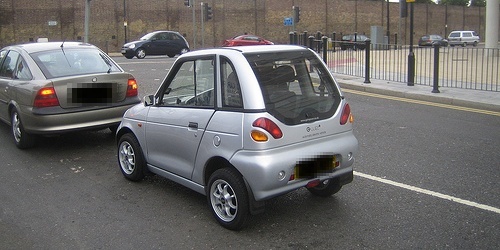Tayside will get no plug-in points for electric cars in the first round of a Scottish Government project.
WWF Scotland director Dr Richard Dixon also called on Holyrood to promise that any further funding coming their way for charging points will be spent in the region.
The Scottish Government successfully bid for part of a £20m fund from Westminster but all of the publicly funded 323 plug-in points will go into the central belt with 31 being placed over the river in Fife.
Dr Dixon said, “I think it is disappointing. It’s a good scheme. We are very keen on electric vehicles as a way of replacing diesel as a means of fuelling vehicles. It’s at an early stage and there is a limited amount of money to cover this and they have chosen the most populated area.
“That is very disappointing for other cities like Dundee and I think we need to see a plan from the government saying that Dundee and the rest of Tayside might not be in this pilot but they will be in future.”
Dr Dixon said electric vehicles on sale just now have a charge that will last about 100 miles. He added, “That means you can get to Edinburgh and back as long as you have time to charge while you’re there. If you want to go from Dundee to Aberdeen, though, you couldn’t do it on public power points.Wider planning”I think electric vehicles will take off in a big way so there needs to be an infrastructure in place across the whole of Scotland, not just the central belt.”
Dundee electric car battery manufacturer Axeon has also joined the calls for more venues to be made available for electric cars across the whole of the country.
Chief executive Lawrence Berns said, “Axeon expect electric vehicles to be an essential part of tackling climate change and would strongly support initiatives from all political parties to accelerate the adoption of this technology during 2011.”
A spokeswoman for Scottish Government-operated Transport Scotland said, “The use of low carbon vehicles, such as electric vehicles, is part of a broader range of sustainable transport initiatives which includes cycling, walking, car sharing and the use of public transport and car clubs.
“This range of sustainable transport interventions will help to reduce car mileage and average vehicle emissions levels over the coming years, helping Scotland reach its world leading targets to cut greenhouse gas emissions.”
Image used under Creative Commons licence courtesy of Flick user loopzilla.
